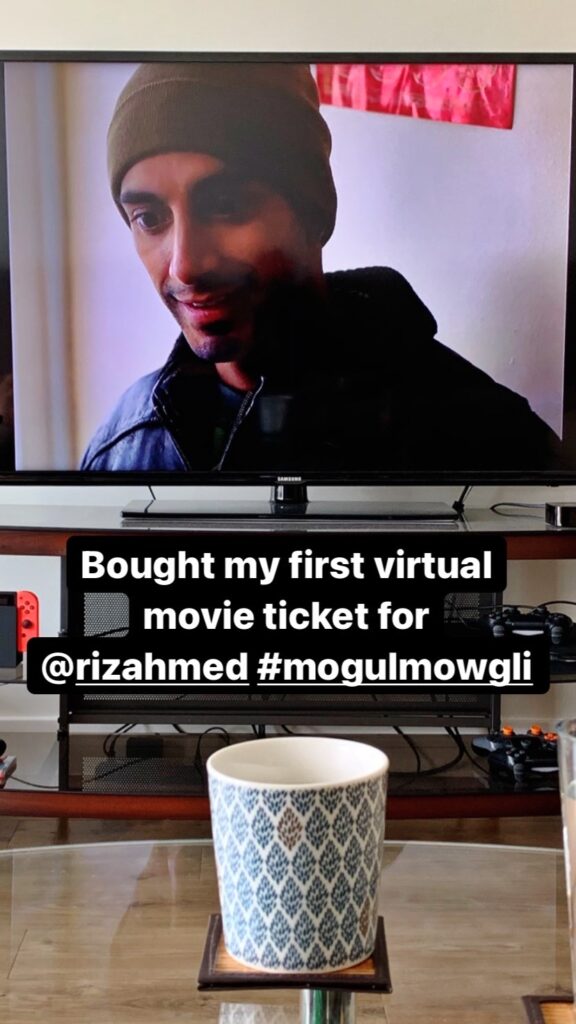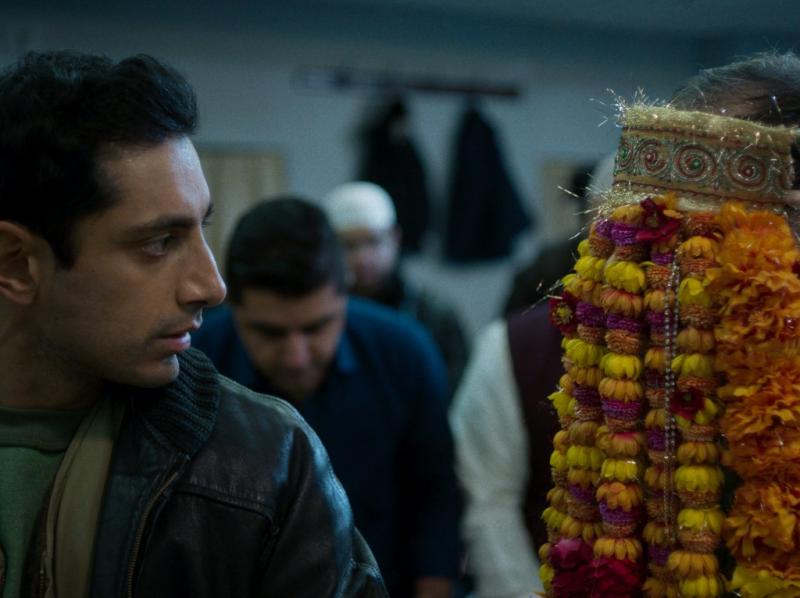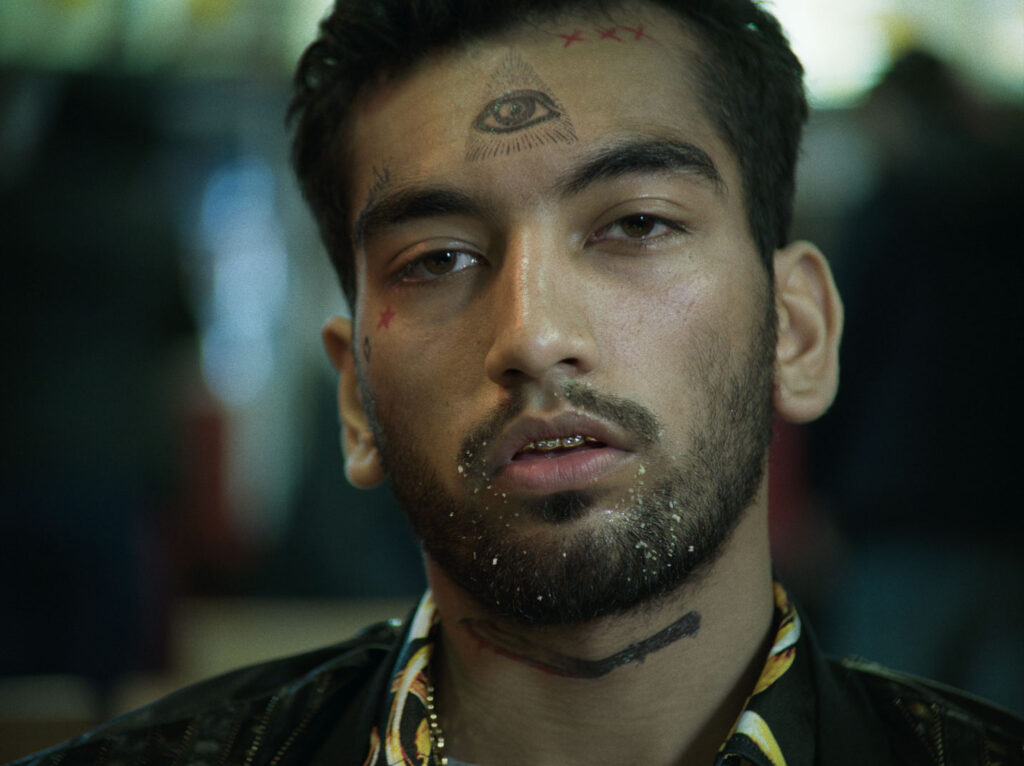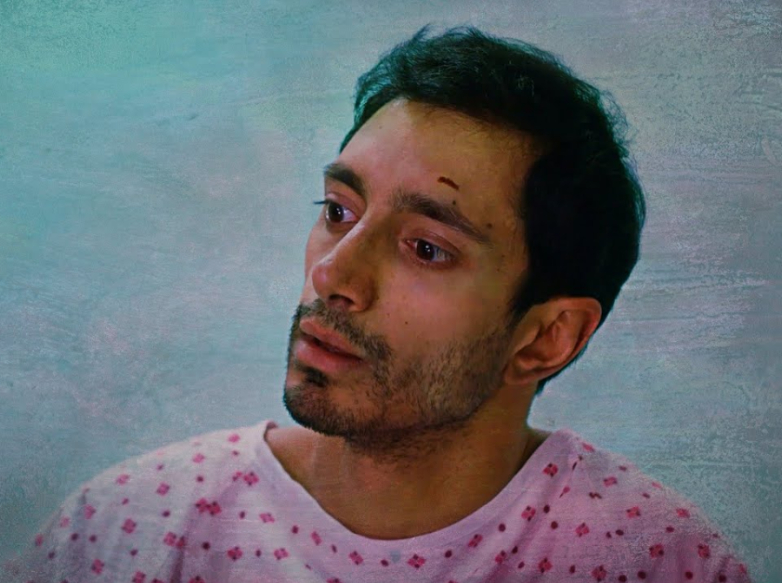A few weeks ago, I wrote a post about everything that happened at the BFI London Film Festival. Admittedly, that post sort of turned into a laundry list of the 139 films that screened at the festival. I was in a laundry list mood that week, what can I say. However, buried in the few shreds of substance in that post was a glowing enthusiasm for one of the 139 films in particular, which was Riz Ahmed and Bassam Tariq’s Mogul Mowgli. The film was recently released on BFI player, but to my dismay, I wasn’t able to view the film because I was located in the USA, not the UK.
As luck would have it, as I was going through my usual morning scroll through Instagram, I noticed that Riz Ahmed had posted a new story. The Instagram story promoted a virtual screening of Mogul Mowgli, followed by a Q&A, and the event was going to take place 19:00 GMT… Or approximately 24 minutes later. Would the website let me view the virtual screening from Los Angeles? I didn’t know, but I was willing to take a risk. So I dished out five quid, bought my virtual ticket, brewed a pot of coffee, connected my laptop to the TV, and started streaming (in that order). I was as good as gold.

What is Mogul Mowgli About?
The film revolves around British-Pakistani rapper, Zed, who is played by Riz Ahmed. Zed lands the opportunity of a lifetime to go on a high-profile tour, only to have his life turned upside down when he’s diagnosed with a debilitating auto-immune disease. As his disease escalates, so does the strain on his relationships with his family, friends, and colleagues. As all of this is going on, Zed grapples with his family’s traditional values, the hypocrisy of his fans, and the values he has claimed as his own, although he becomes increasingly uncertain about whether they are truly his, or just values he has learned to adopt.

Did Mogul Mowgli Live Up to the Hype?
For anyone who is a third culture kid, Mogul Mowgli is poetry in motion. Every single scene has been calculated to depict the raw mix of passion, preciousness, and frustration that comes with having multiple identities to both depart from and protect. From Zed’s frequent arguments with his father, to his eye-rolling attitude towards his parents’ superstitions, to the way he attempts to navigate the tension between his love life and his career; every single interaction is riddled with language and symbolism that is just waiting to be psycho-analyzed by children of immigrants. Zed’s illness is a great example; his auto-immune disease – an inability for the body to recognize itself – is a analogous to the identity crisis that he himself is facing. Throughout the film, Zed’s mission isn’t necessarily to heal or to go on tour, but to find himself and his true identity. To recognize himself again.
That said, the richness in storytelling isn’t always that obvious. In some cases, the layers are in how life imitates art. In the film, an up-and-coming artist who goes by the stage name of RPG, played by Nabhaan Rizwan, follows in Zed’s footsteps as another British Asian rapper. While Zed’s condition progresses, he becomes more and more threatened by the prospect of RPG taking his spot on the tour, rather than celebrating the fact that his message and influence would continue to live on. After the film, during the Q&A with Riz Ahmed and Bassam Tariq, Riz confided that when he first learned about Nabhaan Rizwan, while he was impressed, he was also overcome with a feeling like he was looking at himself, “the next link in the chain.” Upon recognizing those feelings, he insisted that Nabhaan be cast in the film so that he could draw on that dynamic between Zed and RPG.

And Let’s Not Forget About the Music
Mogul Mowgli opens with the hard-hitting song, Once Kings. The stark contrast between its soft synthy rhythm and cutting lyrics sets the tone perfectly for the 90 minutes that follow. At first, the song seems like a harsh way to open, but as the film progresses, the lyrics gain more and more meaning. By the end of the film, you might be surprised by how literally the opening foreshadows what’s to come, especially when it presents itself in ways that during the film seem relatively innocuous.
When all is said and done, Mogul Mowgli is exactly what I expected, and exactly what I wanted. As an Indo-Canadian Muslim with a close connection to music, you can imagine how much I was trying to process as this story unfolded before me. The level of depth was beyond comprehension, and I know that there’s a lot more that I’ll need to unpack and go back to. This isn’t a blockbuster, but it is a work of art. If this sounds like your cup of chai, you can watch Mogul Mowgli on BFI Player, at least if you’re located in the UK. And if you’re not, maybe you’ll luck out and discover a virtual screening through an Instagram story as you roll out of bed.

One Response